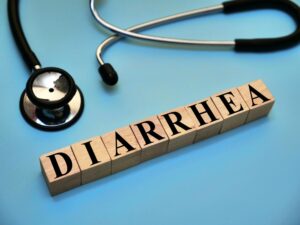
Understanding Colon Polyps: A Guide
A person can have polyps for years and be completely unaware, which is why screening is so important.


FODMAP stands for fermentable oligosaccharides, disaccharides, monosaccharides, and polyols—short-chain carbohydrates poorly absorbed in the small intestine. These carbs can be found in various foods, including fruits, vegetables, grains, and dairy products. When people with irritable bowel syndrome (IBS) consume foods high in FODMAPs, these carbs ferment in the gut, leading to symptoms like gas and abdominal pain. The FODMAP diet is designed to help individuals with IBS identify and avoid foods that trigger these uncomfortable symptoms.
The Low FODMAP diet is a therapeutic approach often used to manage symptoms of Irritable Bowel Syndrome (IBS). For people with IBS, consuming FODMAPs can trigger symptoms like bloating, gas, diarrhea, and constipation.
FODMAPs are not easily absorbed by the body, so they pass into the colon, where bacteria ferment them. This fermentation produces gas, leading to bloating, distension, and abdominal pain. Reducing FODMAPs minimizes fermentation and gas production, alleviating discomfort.
FODMAPs can draw water into the small intestine due to their osmotic effect, contributing to diarrhea. A low FODMAP diet reduces this water retention, helping prevent or reduce diarrhea.
People with IBS often have an extra sensitive gut. By reducing the intake of FODMAPs, the volume of gas and distension is lessened, which can reduce overall gut sensitivity and pain.
Although the diet temporarily restricts FODMAPs, which are types of prebiotics, it helps rebalance the gut bacteria by reducing the overgrowth of bacteria in some parts of the digestive system that can worsen IBS symptoms.
Working with a dietitian is recommended to ensure the diet is balanced and to guide the reintroduction phase.
Certain vegetables are better tolerated by people with IBS (Irritable Bowel Syndrome) following a low FODMAP diet because they contain lower levels of fermentable carbohydrates that can trigger symptoms. Here’s a list of low-FODMAP vegetables that are generally considered safe in moderate portions:
Even though these vegetables are low FODMAP, it is important to consume them in the recommended serving sizes. Large portions of even low FODMAP foods can sometimes trigger IBS symptoms.
A Low FODMAP diet is often recommended to help manage Irritable Bowel Syndrome (IBS) symptoms. Here are some low-FODMAP foods that may help relieve IBS symptoms:
It’s important to reintroduce higher FODMAP foods after a trial period to determine personal tolerance levels, as cutting out all FODMAPs long-term is not ideal for gut health. Working with a registered dietitian can help ensure the correct reintroduction process and personalized long-term IBS management.
By eliminating high FODMAP foods and gradually reintroducing them, individuals can identify their specific triggers and create a personalized long-term diet plan that helps relieve symptoms. While it may require some time and guidance from a professional, the benefits of following a low FODMAP diet can significantly improve one’s quality of life for those living with IBS. Consult with your healthcare provider to determine if this dietary approach is right for you, and seek guidance from a registered dietitian to safely and effectively implement the low FODMAP diet. With the right support and knowledge, managing IBS symptoms can become more manageable and less disruptive to everyday life.
If you would like more information or help with a diet plan, please contact the experts at Allied Digestive Health.

A person can have polyps for years and be completely unaware, which is why screening is so important.

An IBS self-assessment of your symptoms can suggest you have the condition, but it cannot replace a clinical evaluation.

A diet rich in diverse, whole foods supports a wide variety of good bacteria, a state known as high microbiota diversity.

Dealing with diarrhea is never pleasant. The urgent, frequent trips to the bathroom leave you feeling drained and uncomfortable.

Understanding the link between IBS and hemorrhoids is the first step toward finding effective relief and improving your quality of life.

By focusing on credentials, key quality metrics like ADR, and your own comfort, you can make an empowered choice.

Fatigue is not just a minor complaint for those with IBS; it’s a major, pervasive issue. This isn’t just feeling a little tired; it’s a profound sense of exhaustion that isn’t relieved by rest.

The connection between your weight and your reflux symptoms is a two-way street, with each one influencing the other.

A primary care doctor is an excellent starting point; finding a specialist who understands the complexities of IBS can be a game-changer.

Knowing what to expect can help ensure you are fully prepared for your colonoscopy, a critical tool in preventing colorectal cancer.

When a flare-up strikes, the natural instinct is to reach for pain relievers. But can these common medications help, or make things worse?

There’s a wide range of what’s considered normal, but “healthy” generally refers to consistency, ease, and frequency.